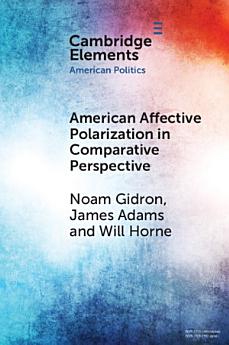American Affective Polarization in Comparative Perspective
Dec 2020 · Cambridge University Press
Ebook
131
Pages
reportRatings and reviews aren’t verified Learn More
About this ebook
American political observers express increasing concern about affective polarization, i.e., partisans' resentment toward political opponents. We advance debates about America's partisan divisions by comparing affective polarization in the US over the past 25 years with affective polarization in 19 other western publics. We conclude that American affective polarization is not extreme in comparative perspective, although Americans' dislike of partisan opponents has increased more rapidly since the mid-1990s than in most other Western publics. We then show that affective polarization is more intense when unemployment and inequality are high; when political elites clash over cultural issues such as immigration and national identity; and in countries with majoritarian electoral institutions. Our findings situate American partisan resentment and hostility in comparative perspective, and illuminate correlates of affective polarization that are difficult to detect when examining the American case in isolation.
Rate this ebook
Tell us what you think.
Reading information
Smartphones and tablets
Install the Google Play Books app for Android and iPad/iPhone. It syncs automatically with your account and allows you to read online or offline wherever you are.
Laptops and computers
You can listen to audiobooks purchased on Google Play using your computer's web browser.
eReaders and other devices
To read on e-ink devices like Kobo eReaders, you'll need to download a file and transfer it to your device. Follow the detailed Help Center instructions to transfer the files to supported eReaders.




